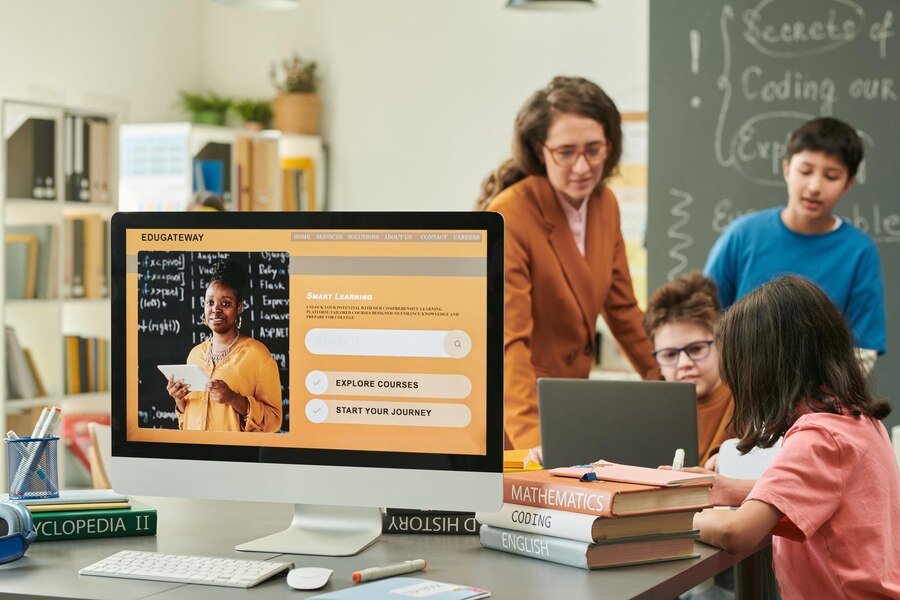The internet is a treasure trove of knowledge, and “get into knowledge” websites are dedicated platforms that help users explore, learn, and expand their understanding across various topics. Whether you’re a student, a professional, or a curious mind, these websites provide resources tailored to your needs. This article highlights what makes knowledge-based websites essential and how they can benefit you.
What Are Get Into Knowledge Websites?
These are platforms designed to share valuable information, tutorials, and guides across a range of subjects. From academics and professional development to hobbies and general knowledge, they cater to diverse audiences seeking to learn something new or deepen their expertise.
Types of Knowledge Websites
Educational Websites
Platforms like Khan Academy and Coursera focus on academic learning, offering courses in science, math, history, and more.
Skill-Based Websites
Websites such as Skillshare and Udemy teach practical skills like coding, graphic design, and photography.
General Knowledge Platforms
Websites like Wikipedia and HowStuffWorks provide information on nearly any topic you can think of.
Niche Knowledge Websites
These focus on specific subjects, such as Space.com for astronomy enthusiasts or Healthline for medical and wellness advice.
Features of High-Quality Knowledge Websites
- Credible Sources: Reliable information backed by research or expert contributions.
- User-Friendly Design: Intuitive navigation and search functionality for easy access to content.
- Engaging Content Formats: Articles, videos, infographics, and quizzes that cater to different learning styles.
- Regular Updates: Content that’s frequently refreshed to remain accurate and relevant.
How to Identify Reliable Knowledge Websites
- Check for Author Credentials: Reputable websites often include author bios or references.
- Look for Citations: Trustworthy platforms cite sources for their information.
- Evaluate the Website’s Reputation: Popular, well-reviewed websites are typically more reliable.
- Beware of Bias: Choose platforms that provide balanced perspectives rather than one-sided views.
Benefits of Using Knowledge Websites
Accessible Learning Anytime, Anywhere
Most knowledge websites are available 24/7, making it easy to learn at your own pace.
Cost-Effective Education
Many platforms offer free resources or affordable courses compared to traditional learning institutions.
Broad Subject Coverage
Whether you’re looking to master a new language or learn about quantum physics, there’s likely a website for that.
Skill Enhancement
Knowledge platforms help you stay competitive by teaching new skills or upgrading existing ones.
Examples of Popular Knowledge Websites
Khan Academy
Focused on free education, this platform provides lessons on everything from algebra to economics.
Duolingo
A fun and interactive way to learn new languages.
TED-Ed
Inspiring and educational videos covering science, history, and more.
Codeacademy
Perfect for learning programming languages like Python, JavaScript, and HTML.
National Geographic
A hub for geography, science, and environmental knowledge.
The Role of Knowledge Websites in Modern Learning
In today’s fast-paced digital world, these websites are reshaping the way we learn. They democratize education, making it accessible to people from all walks of life, regardless of location or financial constraints.
How to Maximize Your Learning Experience
- Set Clear Goals: Define what you want to achieve before diving into content.
- Stay Consistent: Regularly engage with the material to retain what you learn.
- Participate in Discussions: Many platforms have forums or comment sections for interactive learning.
- Apply What You Learn: Practice skills or apply knowledge in real-world situations to reinforce understanding.
Challenges of Using Knowledge Websites
Information Overload
With so many options, it can be overwhelming to choose where to start.
Quality Variability
Not all websites maintain the same standards, so discerning credible sources is crucial.
Lack of Personal Interaction
Unlike traditional learning, these platforms often lack direct teacher-student engagement.
The Future of Knowledge Websites

As technology evolves, these platforms will integrate artificial intelligence, virtual reality, and gamification to enhance learning experiences. They’ll become even more interactive and personalized, catering to individual learning preferences.
Conclusion
“Get into knowledge” websites are invaluable tools in today’s digital age, offering accessible, affordable, and diverse learning opportunities. By leveraging these platforms wisely, you can enrich your life, advance your career, or simply satisfy your curiosity about the world.
FAQs
Are knowledge websites free to use?
Many platforms offer free content, though some may require payment for advanced courses or premium features.
How can I ensure the information on a website is accurate?
Check for credible sources, author credentials, and citations. Reputable websites usually provide verified information.
What are some good websites for learning practical skills?
Websites like Udemy, Skillshare, and LinkedIn Learning are excellent for acquiring practical skills.
How do knowledge websites compare to traditional education?
They are more flexible and cost-effective but lack the personal interaction and accreditation of traditional institutions.
Can I use these websites to prepare for exams?
Yes, many platforms, like Khan Academy or Coursera, offer courses and resources tailored to exam preparation.











